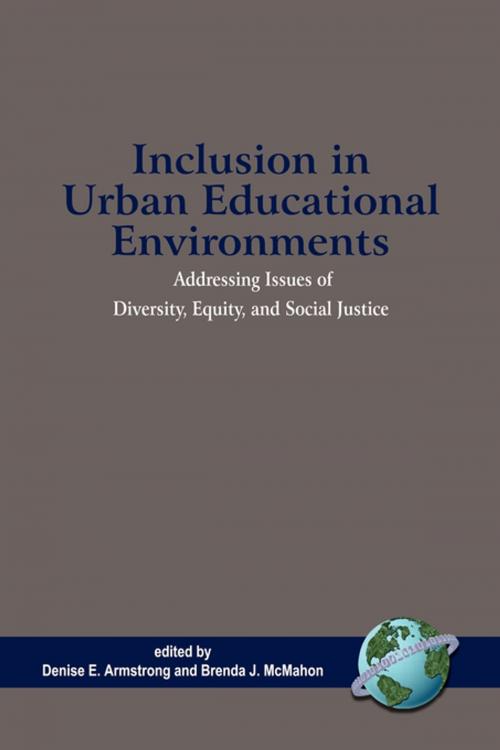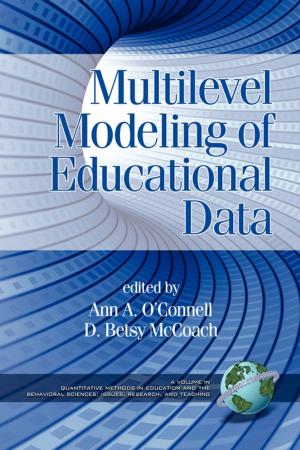Inclusion in Urban Educational Environments
Addressing Issues of Diversity, Equity, and Social Justice
Nonfiction, Reference & Language, Education & Teaching, History, Social & Cultural Studies, Social Science, Sociology, Urban| Author: | Denise E. Armstrong, Brenda J. McMahon | ISBN: | 9781607527206 |
| Publisher: | Information Age Publishing | Publication: | June 1, 2006 |
| Imprint: | Information Age Publishing | Language: | English |
| Author: | Denise E. Armstrong, Brenda J. McMahon |
| ISBN: | 9781607527206 |
| Publisher: | Information Age Publishing |
| Publication: | June 1, 2006 |
| Imprint: | Information Age Publishing |
| Language: | English |
This book is motivated by our experiences in working with students and their families in urban communities. We are particularly concerned about the urgent imperative to address the endemic educational and societal challenges that pervade the lives of urban students, particularly those who live in poverty, are of minority and immigrant backgrounds, and are otherwise marginalized within the current educational discourses and practices. In spite of the fact that over the last 3 decades policy makers, educators and communities across the globe have called for in depth structural changes, this is rarely evidenced in the discourses, practices, and structures within academic and practitioner spheres. This reluctance, despite articulations to the contrary, can be directly linked to normative theoretical and practical perspectives that are defined by assumptions that constrain urban students within restrictive boundaries. These narrow outsider worldviews based on notions of what ought to be, combined with ignorance of the realties of students’ lives focus on deviance and deficits. They blind prospective change agents to the strengths and richness that students bring, and they delimit the transformative potential of social justice praxis within urban environments. The resulting discourse, in the form of deficit beliefs, thoughts, actions, and dialogues shapes urban research, theory, and practice. We contend that in order to counteract the debilitating impacts of these harmful constructions of urban and social justice, it is important to clarify this terminology.
This book is motivated by our experiences in working with students and their families in urban communities. We are particularly concerned about the urgent imperative to address the endemic educational and societal challenges that pervade the lives of urban students, particularly those who live in poverty, are of minority and immigrant backgrounds, and are otherwise marginalized within the current educational discourses and practices. In spite of the fact that over the last 3 decades policy makers, educators and communities across the globe have called for in depth structural changes, this is rarely evidenced in the discourses, practices, and structures within academic and practitioner spheres. This reluctance, despite articulations to the contrary, can be directly linked to normative theoretical and practical perspectives that are defined by assumptions that constrain urban students within restrictive boundaries. These narrow outsider worldviews based on notions of what ought to be, combined with ignorance of the realties of students’ lives focus on deviance and deficits. They blind prospective change agents to the strengths and richness that students bring, and they delimit the transformative potential of social justice praxis within urban environments. The resulting discourse, in the form of deficit beliefs, thoughts, actions, and dialogues shapes urban research, theory, and practice. We contend that in order to counteract the debilitating impacts of these harmful constructions of urban and social justice, it is important to clarify this terminology.















